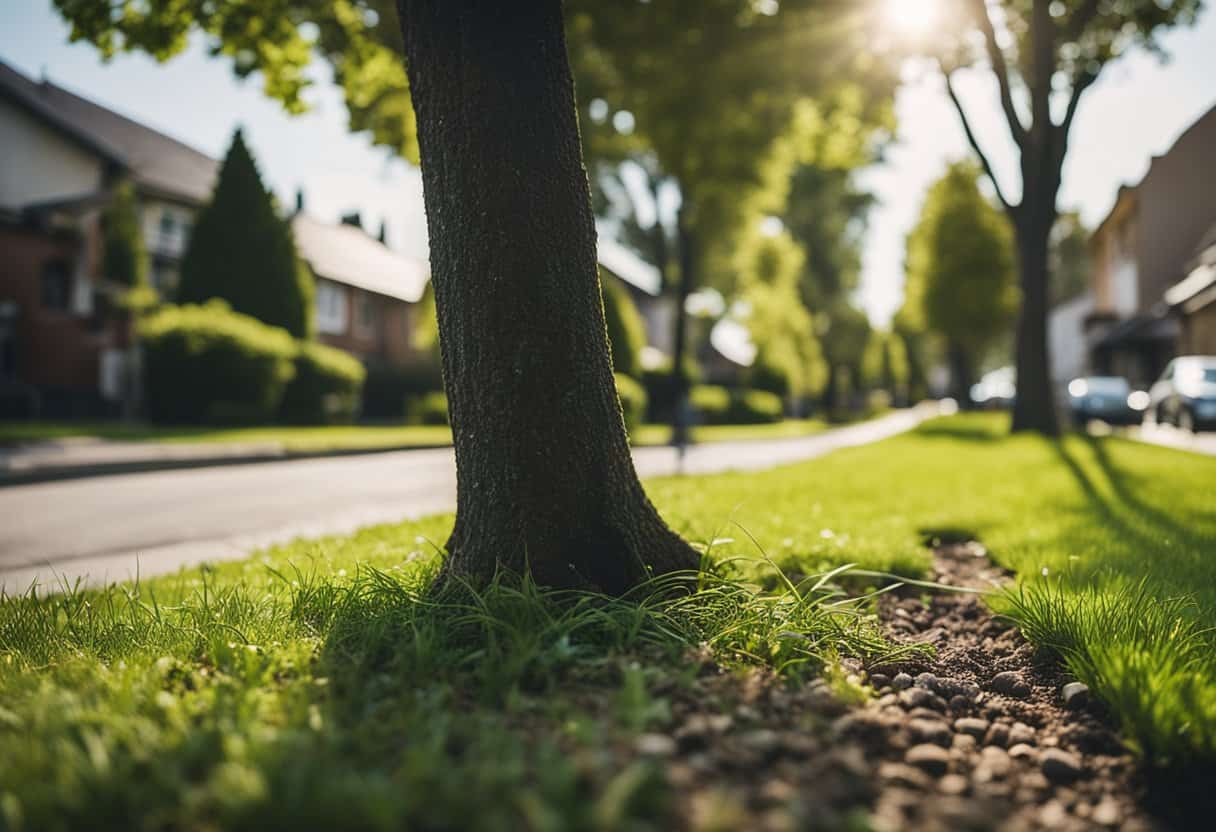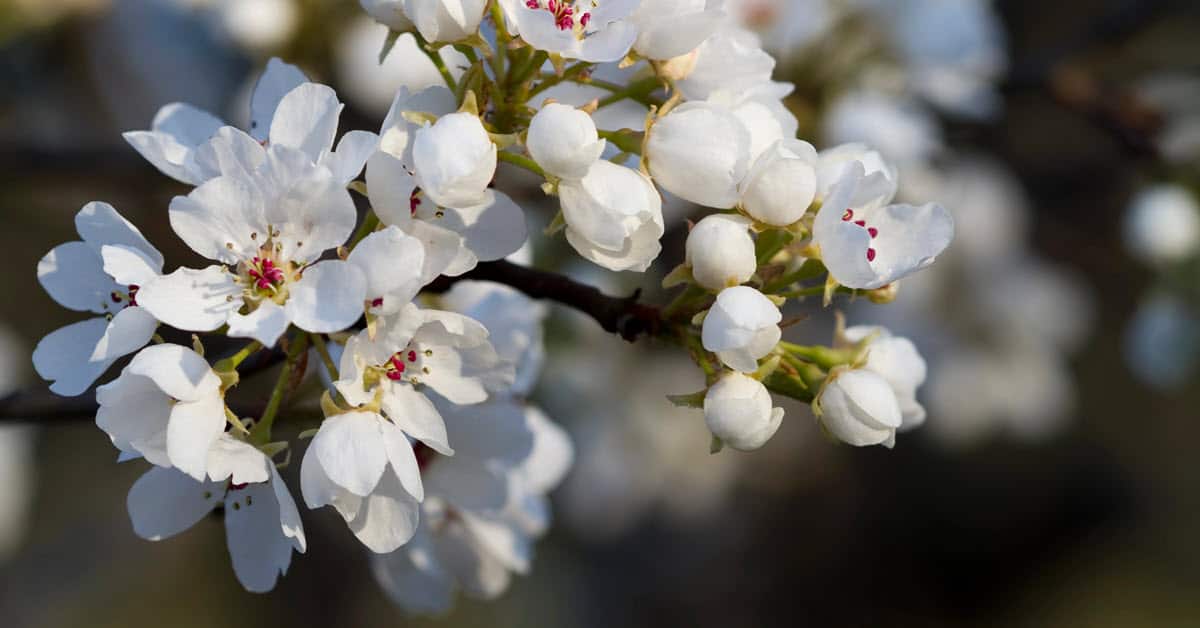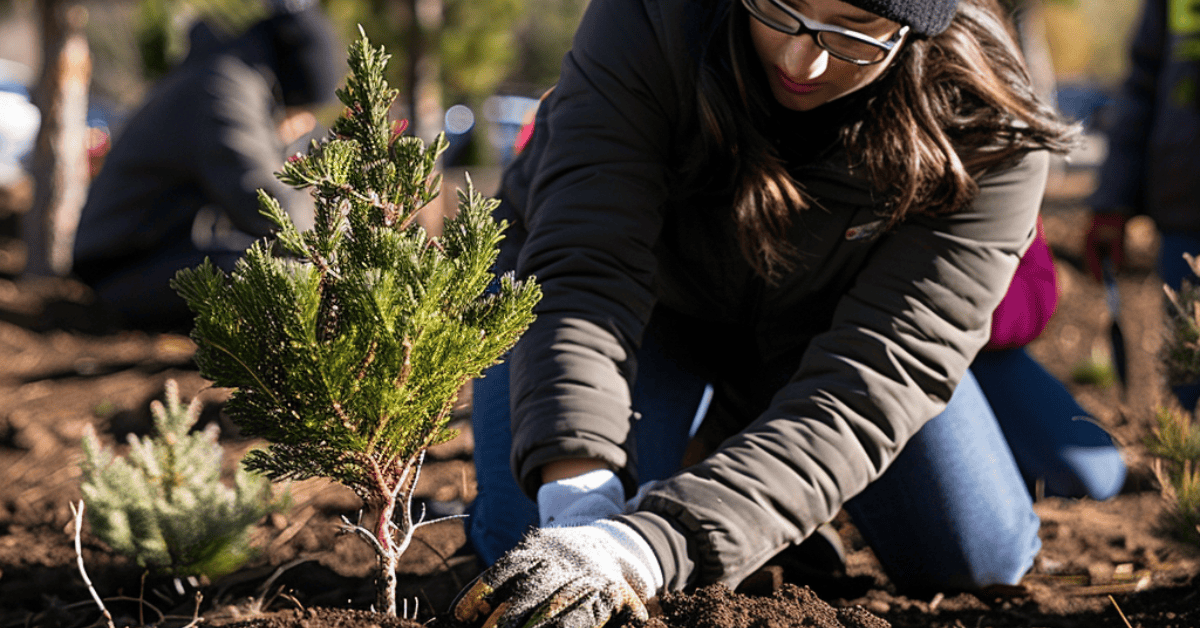Importance of Using a Contractor for Tree Planting in Denver
Hiring a professional contractor for tree planting in Denver ensures a successful outcome. These experts possess valuable knowledge in selecting suitable trees for the local area. They also address vital factors, such as soil conditions, sun exposure, and groundwater levels.
Contractors offer a wide range of tree services that cater to the diverse needs of Denver residents. Their expertise covers not only tree planting, but also tree trimming, fertilization, removal, and more. Furthermore, they can assist with handling issues related to pests, diseases, and invasive species.
One key benefit of using a contractor is their certified arborists on staff. These professionals have undergone rigorous training and certification. This background equips them with special skills in tree planting and care. As a result, arborists can provide valuable advice and perform necessary tasks with precision.
The Many Benefits of Planting Trees
Soil Considerations for Planting Trees
It’s crucial to assess the soil type before planting any trees. Denver soil can be clay-rich, which holds moisture and may hinder tree root growth. Adding organic matter like well-rotted compost can improve clay soil structure, allowing tree roots to grow without constraints. Mix the compost with existing soil to create a favorable environment for the tree.
Drainage is another essential factor to consider. Denver’s soil can retain water, leading to root rot and poor tree health. If you notice that water pools in the area where you plan to plant, try amending the soil with organic matter or sand. You may also consult a local tree expert to determine the most suitable solution.
Additionally, tree species selection should align with Denver’s climate and soil conditions. Some trees are better suited for the city’s conditions, thriving in the area with minimal effort. Consider seeking advice from a local tree planting service to ensure you choose the best tree for your specific location.
Water Considerations for Tree Planting
In general, watering needs vary depending on the tree species and size. A good rule of thumb is to apply 10 gallons of water per inch of tree diameter for younger trees, and 15 gallons per inch for mature trees with a diameter of 10 inches or more. This guideline ensures that trees receive the appropriate amount of water based on their size and stage of growth.
It’s also important to consider the frequency of watering. For the first 6 to 8 weeks after planting, water the tree once per week, allowing the water to saturate the ground completely. In excessively warm temperatures, increase the watering frequency to twice per week. Beyond the initial 8 weeks, adjust the watering schedule based on the tree’s needs and weather conditions.
Tree planting services should also be aware of the regulations and guidelines for tree placement in residential areas. Proper spacing allows for adequate access to resources like sunlight and water. In Denver, according to The Park People, it is recommended to have 35 feet between shade trees and 25 feet between ornamental trees. Adhering to these guidelines ensures that trees have ample space to grow and receive the necessary sunlight and water for optimal health.
Choosing the Right Trees and Shrubs for Your Denver Property
When picking trees and shrubs along Colorado’s Front Range, size and climate should be top factors. Denver has a semi-arid climate, which makes certain trees more suitable than others.
One excellent choice for Denver’s climate is the Colorado Blue Spruce. They grow well in full sun and can adapt to various soil conditions.
Small Trees and Shrubs: Crabapple, Chokecherry, and Serviceberry are great small trees for Denver yards. These trees bloom in the spring, adding color to your landscape. For shrubs, consider the Rocky Mountain Juniper which is a resilient choice for the Denver area.
Medium Trees: Kentucky Coffeetree, Thornless Honeylocust, and Hackberry are medium-sized trees well-suited to Denver’s climate. These trees can handle Denver’s weather extremes and provide ample shade in the summer.
Large Trees: For big trees, choose the Bur Oak, Cottonwood, or Green Ash. These species fare well in Denver’s climate, offer shade, and can become essential parts of your property’s ecosystem.
It’s essential to avoid certain trees, like silver maples, which don’t do well in Colorado. They’re not resistant to Colorado’s spring snowstorms, have a very shallow root ball, and are prone to leaf yellowing due to insufficient iron in Denver’s alkaline soil. Stick to recommended trees for the best rate of success in your landscape.
Space Considerations for Tree Planting

Envision the Mature Tree Prior to Planting
Before planting a tree, consider its expected size when fully grown. This helps pick the right tree for the available space. Keep in mind the mature tree’s canopy width and potential root growth to prevent future issues with house foundations, sidewalks, or other structures. Make sure to review the chosen species’ growth habits and requirements for healthy development.
Distance From Other Greenery
Adequate spacing between trees allows for sun exposure and air circulation. In Denver, it is commonly advised to have 35 feet between shade trees and around 25 feet between ornamental trees. By following these guidelines, you can ensure that your trees get enough space to grow while maintaining the health of the surrounding greenery.
Distance From Roofs and Other Structures
In addition to planning distance from other trees, the proximity of trees to buildings, roofs, and other structures should also be taken into account. At least 30 feet away from the curb at intersections and 20 feet from streetlights is often recommended to prevent future issues and reduce risks. Proper spacing helps with tree maintenance and prevents possible damage to nearby structures while ensuring the tree’s health and longevity.
How Your Denver Contractor Plants Trees: The Process
When it comes to planting trees in Denver, Colorado, hiring a professional tree planting service ensures that the job is done right and the trees have the best chance of growing successfully. In this section, we’ll cover the process your Denver contractor follows when planting trees in residential areas.
Contractor Digs a Hole 2-3 Times Larger Than the Root Ball
The first step in the tree planting process is to dig a hole that is 2-3 times larger than the tree’s root ball. This allows for adequate space for the tree’s roots to spread out and establish themselves in the soil. A larger hole also encourages proper root growth and can help improve the tree’s overall health and stability in its new environment.
Contractor Positions Tree in the Hole
Once the hole is prepared, the contractor carefully positions the tree in the hole, ensuring that it is placed at the correct depth. The top of the root ball should be slightly above the surrounding soil level to account for any settling that may occur. Proper positioning is essential for the tree’s survival and growth in its new location.
Dirt is Then Backfilled Into Hole With Minimal Compaction
The contractor then backfills the hole with soil, ensuring that there is minimal compaction of the soil around the root ball. This allows for proper air and water movement around the roots, promoting healthy root growth. Care is taken to ensure that the tree remains upright and stable during this step.
Time to Fertilize, Water and Mulch
Once the tree is planted, it’s time to provide it with the necessary nutrients and care to get it off to a strong start. The contractor may apply a slow-release fertilizer to the soil around the tree, ensuring the tree receives the nutrients it needs for healthy growth.
Watering the tree deeply and thoroughly is essential, as this will help the roots establish themselves and adapt to their new environment. Following the initial watering, maintaining an appropriate watering schedule will support the tree’s growth and health in the long term.
Finally, applying a layer of organic mulch around the base of the tree can help retain moisture, regulate soil temperature, and suppress weeds, making it an essential element of the tree planting process. Be sure to only have mulch around the base of the tree and not actually touching the tree trunk as this can lead to health problems for the tree.
Frequently Asked Questions
What Trees are Native to Denver, Colorado?
Denver, Colorado, is home to a variety of native trees that thrive in its diverse climate and soil conditions. Crabapple, Chokecherry, and Serviceberry are great small trees for Denver yards. Kentucky Coffeetree, Thornless Honeylocust, and Hackberry are medium-sized trees well-suited to the Front Range climate. Larger Tree ideas include Bur Oak, Cottonwood, or Green Ash.
When is the Optimal Time to Plant Trees in Denver?
The optimal time to plant trees in Denver, Colorado, is during the spring and fall seasons. Spring planting allows trees to establish their root systems before the hot summer months, while fall planting offers cooler temperatures and increased soil moisture, providing ideal growing conditions for newly planted trees. Planting during these seasons helps to ensure the tree’s health and growth.
How Much Does it Cost to Buy a Tree and Get it Planted in Yard in Denver?
The cost to buy a tree and have it planted in your yard in Denver varies depending on the size, species, and accessibility of your site. According to this article, tree prices can range from small and inexpensive – around $100 – to large and more costly up to $2,000 or more, with additional fees for planting services. Your tree contractor can provide you with a price for tree and related planting services.
Tree Planting
Add Privacy, Shade, and Protect Your Grass with New Trees

DIY Yard Care
Check out our blog for information on how to do upkeep around your yard. Tips and tricks for keeping your lawn, plants and trees healthy.

Tree Contractors
View Our Directory of Tree Services Contractors

Denver Events Calendar
A monthly listing of the events for you and your family to enjoy in and around Denver

Tree Planting Blog Posts
Below are blog posts from our blog related to tree planting and overall tree health.
OOOH That Smell! The Pungent Callery Pear Tree
The Best Time to Plant a Tree in Colorado
COMPLETE LIST OF ALL SERVICES
All Services
Click a Link Below for More Information About Services Provided
Hardscaping
Curbing
Decks
Fence Maintenance & Install
Fire Pits
Landscape Lighting
Outdoor Kitchens
Patios
Pergolas & Gazebos
Retaining Walls
Walkways
Sprinkler Systems
General
Fall Cleanup-Leaf Removal
Landscape Design
Mulching
Organic Landscaping
Snow Removal
Spring Cleanup
Water Features
Xeriscaping
Trees, Shrubs & Perennials
Flower Beds & Planters
Hedge & Shrub Trimming
Stump Grinding
Tree Planting
Tree Removal
Tree Trimming & Pruning
Lawn Maintenance
Lawn Aeration
Lawn Dethatching
Lawn Edging
Lawn Fertilization
Lawn Mowing
Pest Control
Weed Control
Drainage Issues
Sod & Turf
OUR SERVICE AREA
Serving Denver and Surrounding Suburbs
The perfect Denver landscaper for your needs.
For more information, click on your community below
LET’S GET STARTED
Contact Us
Denver Landscaping Lynx
Phone:
303.268.2866
Email:
operations@denverlandscapinglynx.com
Hours:
Sun – Sat: 8am – 6pm


